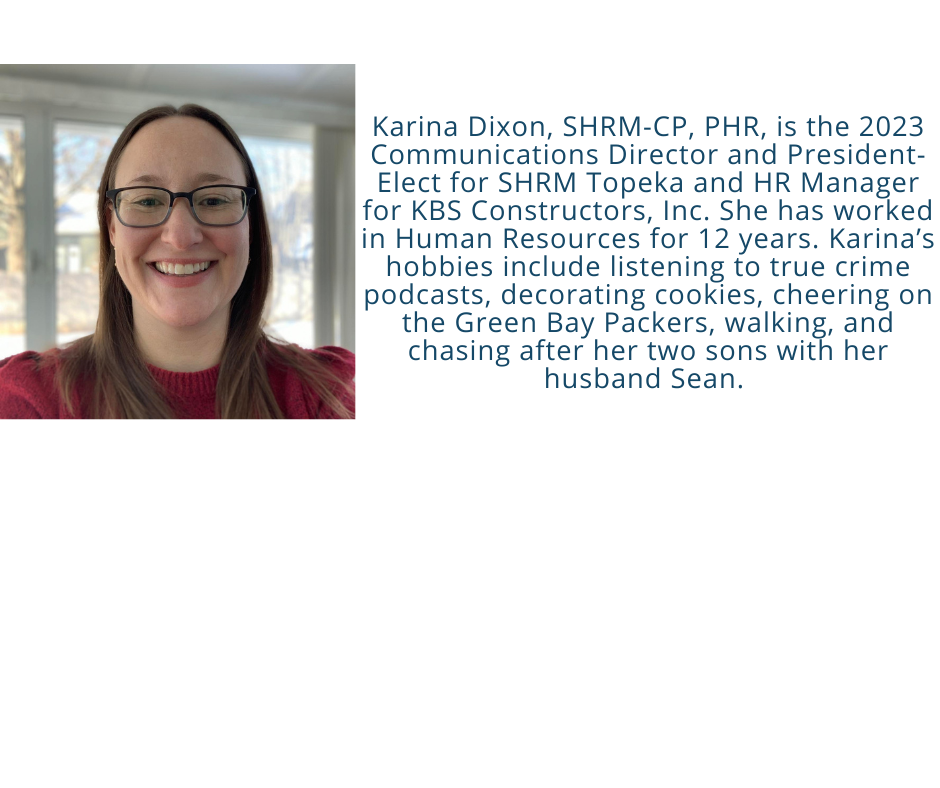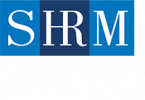Resources Roundup: Workplace Investigations

At the SHRM Topeka January training, we had a great presentation from Kim Seten, a partner with Constangy, Brooks, Smith & Prophete, on “Having Hard Conversations from a Litigator's Perspective.” Kim covered the following topics:
- How to determine when an investigation is warranted
- Six Steps to Completing an Internal Investigation
- Handling Unexpected Issues & Avoiding Investigative Pitfalls
- The importance of documentation
If you missed this presentation, or if you’re looking for more guidance, I’ve put together a list of additional resources on workplace investigations.
Workplace Investigations Guide
This guide from Employers Council includes, “Everything employers need to know to prepare, conduct, and outsource thoughtful and fair investigations.” Topics include:
- The top 5 workplace investigation challenges
- Plan ahead for smoother workplace investigations
- Signs an investigation is warranted
- What does a workplace investigation report include?
- The workplace investigations process
- How much does a workplace investigation cost?
- Hiring for investigation services
The DOs and DONTs of Conducting Workplace Investigations Webinar
Marla Merhab Robinson, Esq. of Merhab Robinson & Clarkson and Linda Duffy of Ethos Human Capital Solutions explain the do’s and don'ts of conducting a workplace investigation in this pre-recorded webinar from 2017. Covered topics include:
- What strategies and procedures should you have in place prior to the investigation?
- When should an investigation be conducted?
- Who should conduct the investigation? Which circumstances require an external investigator?
- How should you document your investigation?
- With whom should you communicate your findings?
- Things to never do when conducting a workplace investigation
Workplace Wake-Up with Jen Shaw - Episodes 16-19
Jen Shaw of Shaw Law Group PC dedicated four podcast episodes to workplace investigation topics in April 2022.
Episode 16 - Trends in Workplace Investigations
Episode 17 - When to Bring in an Outside Investigator
Episode 18 - The Role of Confidentiality in Workplace Investigations
Episode 19 - The Investigation Report: How to Write It, Who Gets a Copy, and Why to Keep it Confidential
Listen at the link above or search for Workplace Wake-Up wherever you get your podcasts.
Six Best Practices for Workplace Investigations
This post from Perkins Coie LLP lists and expands on the following six “best practices to help companies conduct excellent workplace investigations.”
- Conduct Timely Investigations
- Create an Investigation Plan
- Determine the Scope and Goals of the Investigation
- Gather and Preserve Relevant Documents
- Use Vivid and Plain Language
- Report Out and Finalize the Investigation File
6 Best Practices for Conducting Fair HR Investigations
This blog post from HR case management & employee relations software provider HR Acuity focuses on “six essential best practices for workplace investigation interviews.”
- Follow a standard HR investigation timeline
- Explain to the person why they are being interviewed
- Adhere to your company’s HR investigation protocol
- Don’t delay the investigation process
- Ask the right HR investigative questions
- Document the findings from your investigation
A Checklist for Conducting Workplace Investigations
Christine Gantt-Sorenson from Haynsworth Sinkler Boyd PA states in this blog post, “Given every complaint could turn into litigation, a well-planned and documented investigation can be an employer’s best defense.” She lists and details the following steps that employers should take when a complaint is received:
- Obtain a written statement
- Ensure confidentiality, non-retaliation and explain next steps
- Gather tangible evidence
- Timing
- Interview witnesses
- Interview the accused
- Make a decision
- Investigation Closure
- Written Investigation Summary
SHRM Resources
Leading Workplace Investigations
This program is offered for Team Training, customized training programs for teams of eight or more either onsite or virtually, OR for individual in-person or online. The program covers a best-practice framework for conducting internal investigations as well as tactics to mitigate risk and the development of HR policies and procedures for a “more appreciative, engaged and productive workforce.”
You are not required to be SHRM certified to participate in the Leading Workplace Investigations program, but you will receive 7.5 PDCs towards SHRM recertification once the program is completed.
SHRM Workplace Investigations Specialty Credential
This SHRM credential includes enrollment in the Leading Workplace Investigations Educational Program and two e-Learning courses (Managing Bias in a Workplace Investigation and Competent Workplace Investigation Interviews). You’ll then take an online knowledge assessment to complete the credential.
You are not required to be SHRM certified to earn the Workplace Investigations Speciality Credential, but you will receive 13.5 PDCs towards your SHRM recertification once you have passed the knowledge assessment.
SHRM Members-Only Resources
Resources and Tools: Workplace Investigations
SHRM members can access the Workplace Investigations resource hub page. Resources linked here include (but are not limited to) the How-To Guide: How to Conduct an Investigation, HR Forms: Investigation Checklist and Investigator Questions for Accusers and Witnesses, various sample policies, and a section on News & Research.
Ask An Advisor
SHRM’s HR Knowledge Advisors “offer guidance, real life personal/professional experience, and resources to assist our members with their HR-related inquiries.” You can call, chat or email an advisor up to 15 inquiries in a 12-month membership period.
Do you have resources you would add to this list? Send them to shrmtopeka@gmail.com!





